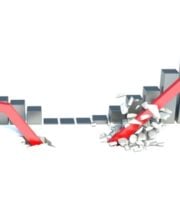When it comes to home maintenance, unexpected water damage can be a significant burden. The cost of repairs can mount quickly and the disruption caused to routine life is substantial. However, budget-friendly plans can help effectively manage these unforeseen issues without causing substantial financial distress. For more information and professional help, you can visit waterdamagespecialist.com.au. This article will help homeowners and tenants navigate this often complex and expensive problem.
Understanding the Causes of Water Damage
The first step in dealing with water damage is understanding its sources. Water damage can result from a variety of factors, such as leaky pipes, malfunctioning appliances, roof leaks, natural disasters, and severe weather conditions. Understanding these causes helps in early detection and prevention of extensive damage, consequently reducing the repair expenses.
Identifying Signs of Water Damage
The earlier water damage is detected; the less costly it becomes to fix. Look out for signs like peeling paint, musty odors, mold, discoloration on walls or ceilings, and bloated wooden furniture or flooring. Timely action against these signs could save hundreds or even thousands in repair costs.
How Insurance Covers Water Damage
Most standard homeowners insurance policies cover certain types of water damage but may exclude others like flooding resulting from heavy rains or sewage backups. It thus becomes essential to understand your policy coverage and consider additional coverage if necessary to provide financial support during such events.
DIY Fixes versus Professional Services
If the level of water damage is minimal, there are numerous DIY fixes available. This may involve drying the area out with fans or dehumidifiers and clean-up using wet-dry vacuum cleaners or sponges. However, in the case of serious damages involving structural issues or mold development, professional services become a necessity despite being quite expensive.
Purchasing Supplies in Advance
A good way of ensuring you are always ready for any unexpected water damage is by having some necessary repair supplies at home. These include items like dehumidifiers, wet-dry vacuum cleaners or sponges that can help handle initial cleanup without needing to immediately call in professionals.
Scheduling Regular Maintenance Checks
Maintenance checks may seem expensive initially but are in fact a long-term money-saving strategy when dealing with potential water damages. Regular checks ensure small complications get caught before they turn into major issues and thus prevent expensive repairs down the line.
The Importance of Proper Ventilation
Proper ventilation goes a long way in preventing noxious mildew and dangerous molds that tend to skyrocket remediation costs dramatically by causing structural deterioration and health related problems. Incorporating moisture-resistant materials during construction also provides long-term savings by minimizing potential damages.
Maintaining An Emergency Fund
A solid emergency fund earmarked specifically for house repairs can serve as a security blanket against unexpected expenses relating to water leakage or seepage. If you do not currently have an emergency fund, consider starting one now to prepare.
Knowing When to Call Experts
Some instances of water damage necessitate professional intervention irrespective of the costs involved due to potential structural dangers involved which DIY efforts cannot address correctly and safely enough.
Negotiating Prices with Contractors
In case professional assistance does become unavoidably necessary always try negotiating costs with several different contractors before finally settling on one who offers good quality service at reasonable pricing.
Conclusion: Being Prepared Saves Money
While dealing with unpredictable water damage might appear daunting at first if we stay prepared and are well-informed about various aspects involved it need not necessarily weigh heavy on our personal finances every time.







